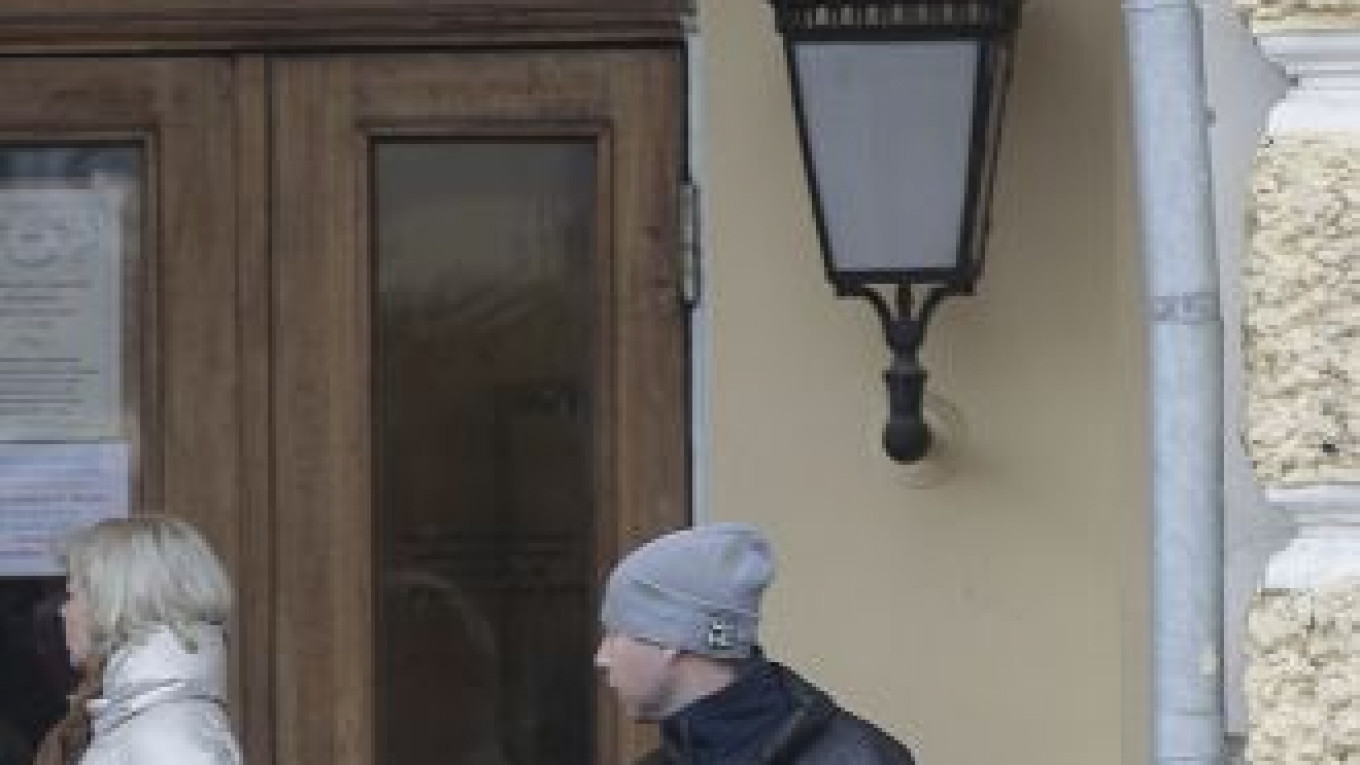Correction: An earlier version of this article misstated the cost of the Bolshoi Theater's restoration. The theater spent more than $600 million on the project.
With the Bolshoi Theater’s historic stage opening after restoration Friday, there is huge interest in tickets. But anyone walking past the box office this week would have witnessed an unexpected scene, as one by one a series of men who looked as if they were more used to sleeping rough than watching ballet, came out holding tickets to Tchaikovsky’s “The Nutcracker.”
When one ticket buyer, whose alcohol-heavy breath could be smelt from a mile away, stumbled out of the door, the line waiting to get into the box office applauded sarcastically, with one crying out, “a theater lover.”
That was one of the few moments of humor for ordinary people lining up for tickets as they saw most of the tickets snapped up by scalpers who had hired the homeless and the down-and-out to wait in line from the early morning hours to get the tickets.
The theater may have spent more than $600 million on the restoration, but there seems to have been little invested in ensuring that tickets go into the hands of ordinary Bolshoi fans.
“This is shameful, the smell of alcohol, the homeless,” said Zinaida Akchurina, 55, who was in the line to buy tickets for herself and her daughter.
Twenty of them came and pushed us out of the way, said Galina, a flustered red-haired pensioner who was holding her chest in shock after she had finally bought two tickets.
Walking away from the box office, the man leaned at an acute angle that even the best of ballet dancers would find hard to copy.
He then handed over the tickets to a second man along with change.
Another hired ticket buyer opened his coat to show extra layers of clothing he had put on for the morning wait. When asked whether he had ever been to the Bolshoi, he said no, “if you walk past it all the time and see it, you don’t want to go in.”
He had, however, been in the Odessa opera house once in 1985, but left after the second act.
Tensions were high in the line, with ordinary theatergoers shouting at the interlopers and suspecting that anyone who did not look right was a scalper. At one point, a woman slapped the hat off the head of another lady whom she suspected of being part of the scalper’s team.
There were similar scenes earlier in the week with rough-looking men, one with blood on his face, lining up for tickets, said one witness, Natalya.
“I’ve never seen anything like it before, it’s a disgrace,” said Natalya, a teacher who has been going to the Bolshoi for more than a decade and seen its production of “Don Quixote” 15 times. She was in the line for four hours, but still came away without a ticket.
After buying their tickets, the men then went into the nearby National Youth Theater, where they handed them over to a man who carefully wrote down the transactions, she said.
The Bolshoi press secretary did not respond to e-mailed questions or phone calls Thursday, but the theater’s general director, Anatoly Iksanov, did speak about the problem at a news conference on Monday, when asked about the tense situation at the box office.
“There is a problem. I don’t know how to fight it. There’s a problem at the opera in Paris and at La Scala, too,” Iksanov told reporters.
Iksanov said there was no legal way to stop the scalpers from buying tickets.
Former Mayor Yury Luzhkov attempted to fight the scalpers years ago, but, “unfortunately, without any results,” Iksanov said.
The Bolshoi Theater sells tickets for performances on its historic stage two months in advance.
A big sale will take place next week, when tickets for “The Nutcracker” over New Year’s, one of the most desired shows of the season, go on sale. Box office staff already know what will happen.
“It will be an even worse nightmare,” said a cashier who answered the phone at the box office Thursday.
A Message from The Moscow Times:
Dear readers,
We are facing unprecedented challenges. Russia's Prosecutor General's Office has designated The Moscow Times as an "undesirable" organization, criminalizing our work and putting our staff at risk of prosecution. This follows our earlier unjust labeling as a "foreign agent."
These actions are direct attempts to silence independent journalism in Russia. The authorities claim our work "discredits the decisions of the Russian leadership." We see things differently: we strive to provide accurate, unbiased reporting on Russia.
We, the journalists of The Moscow Times, refuse to be silenced. But to continue our work, we need your help.
Your support, no matter how small, makes a world of difference. If you can, please support us monthly starting from just $2. It's quick to set up, and every contribution makes a significant impact.
By supporting The Moscow Times, you're defending open, independent journalism in the face of repression. Thank you for standing with us.
Remind me later.






